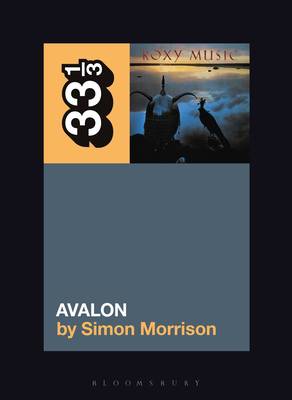
En raison d'une grêve chez bpost, votre commande pourrait être retardée. Vous avez besoin d’un livre rapidement ? Nos magasins vous accueillent à bras ouverts !
- Retrait gratuit dans votre magasin Club
- 7.000.000 titres dans notre catalogue
- Payer en toute sécurité
- Toujours un magasin près de chez vous
En raison de la grêve chez bpost, votre commande pourrait être retardée. Vous avez besoin d’un livre rapidement ? Nos magasins vous accueillent à bras ouverts !
- Retrait gratuit dans votre magasin Club
- 7.000.0000 titres dans notre catalogue
- Payer en toute sécurité
- Toujours un magasin près de chez vous
Description
Having designed Roxy Music as an haute couture suit hand-stitched of punk and progressive music, Bryan Ferry redesigned it. He made Roxy Music ever dreamier and mellower-reaching back to sadly beautiful chivalric romances. Dadaist (punk) noise exited; a kind of ambient soft soul entered. Ferry parted ways with Eno, electric violinist Eddie Jobson, and drummer Paul Thompson, foreswearing the broken-sounding synthesizers played by kitchen utensils, the chance-based elements, and the maquillage of previous albums.
The production and engineering imposed on Avalon confiscates emotion and replaces it with an acoustic simulacrum of courtliness, polished manners, and codes of etiquette. The seducer sings seductive music about seduction, but decorum is retained, as amour courtois insists. The backbeat cannot beat back nostalgia; it remains part of the architecture of Avalon, an album that creates an allusive sheen. Be nostalgic, by all means, but embrace that feeling's falseness, because nostalgia-whether inspired by medieval Arthuriana or 1940s film noir repartee or a 1980s drug-induced high-deceives. Nostalgia defines our fantasies and our (not Ferry's) essential artifice.Spécifications
Parties prenantes
- Auteur(s) :
- Editeur:
Contenu
- Nombre de pages :
- 160
- Langue:
- Anglais
- Collection :
- Tome:
- n° 155
Caractéristiques
- EAN:
- 9781501355349
- Date de parution :
- 06-05-21
- Format:
- Livre broché
- Format numérique:
- Trade paperback (VS)
- Dimensions :
- 119 mm x 165 mm
- Poids :
- 181 g

Les avis
Nous publions uniquement les avis qui respectent les conditions requises. Consultez nos conditions pour les avis.






